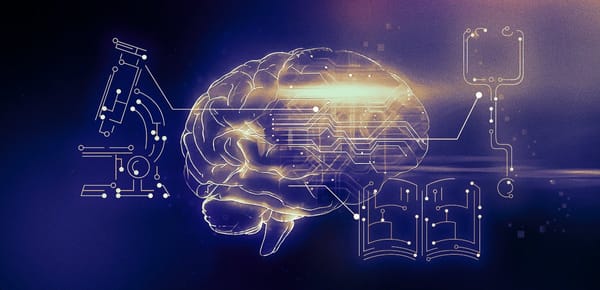Navigating the Dark Web: The Enigma of Anonymity and Illicit Activities
Cryptocurrencies let people do transactions without anyone knowing who they are, which was something cybercriminals found very attractive for doing illegal things on the dark web.
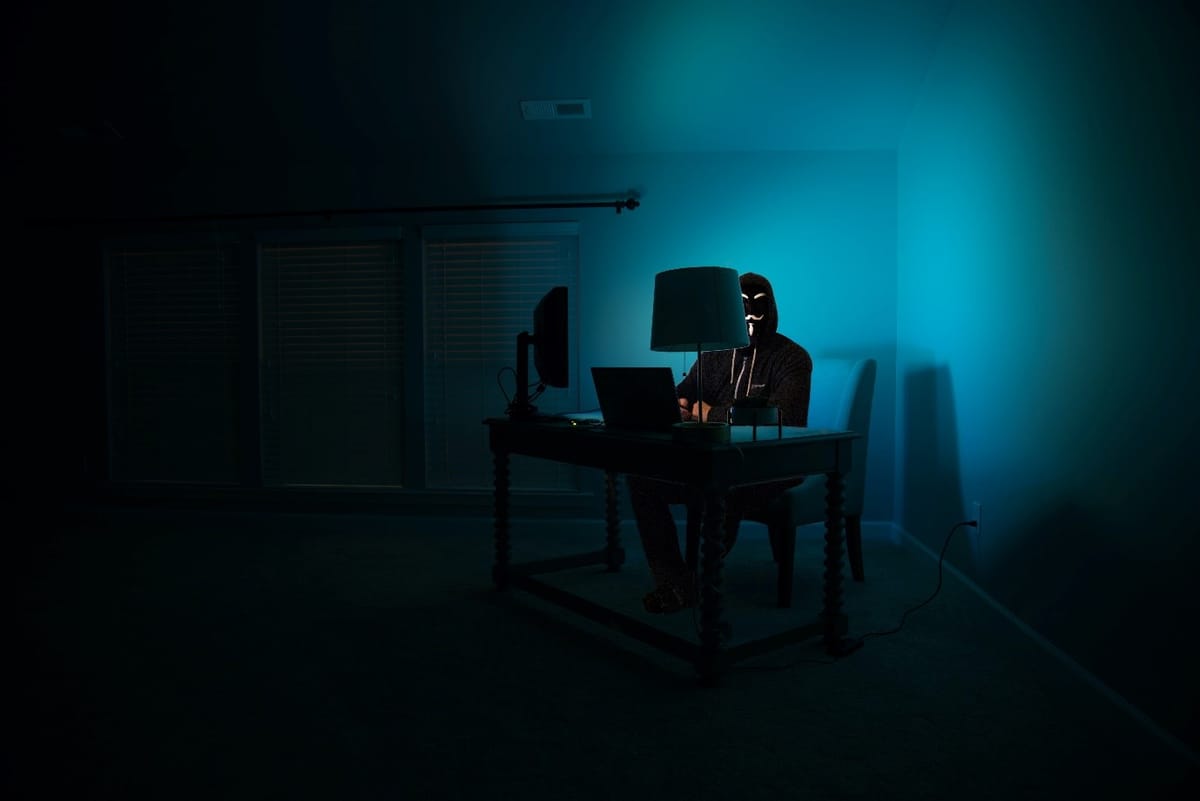
Introduction
The dark web, a mysterious realm hidden beneath the surface of the internet, has long captured the imagination of users and authorities alike. In this exploration, we delve into the intricacies of the dark web, shedding light on its origins, functionalities, and the dichotomy between its legitimate uses and the nefarious activities that often dominate headlines.
Understanding the Dark Web
The dark web is like a secret part of the internet where things are hidden. It's not easy to find on regular search engines like Google because the online content there is encrypted, which means it's like a secret code that's hard to understand. To go into this secret part of the internet, people use special browsers like the TOR Browser, and when they do, it gives them more privacy and makes them more anonymous compared to using regular websites. It's not like the websites we usually use because it doesn't show up on Google, and it works more like a secret network with hidden websites. Instead of using regular links, the dark web uses information from individual accounts, like emails, social media, and personal databases.
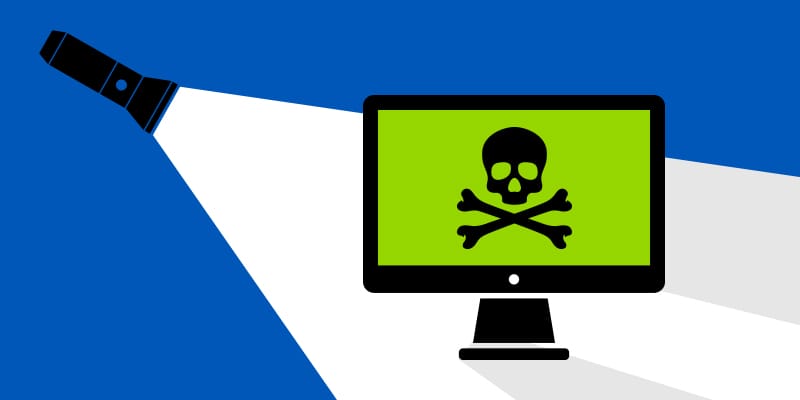
Think of it as a kind of hidden space on the internet, kind of like when the internet first started. Some people use the dark web for things that need to be kept private, like political dissidents or those who want more privacy. But it's also known for illegal stuff, so it's important to know that not everything there is okay. Some people use it for good reasons, but others do illegal things, like buying and selling drugs, weapons or stolen data.
Differentiating the Dark Web and the Deep Web
We need to understand the difference between the deep web and the dark web. The deep web is like a hidden part of the internet that regular search engines can't see. It includes things like online banking, subscription services, and private databases. It's not bad; it's just not easily found using Google.
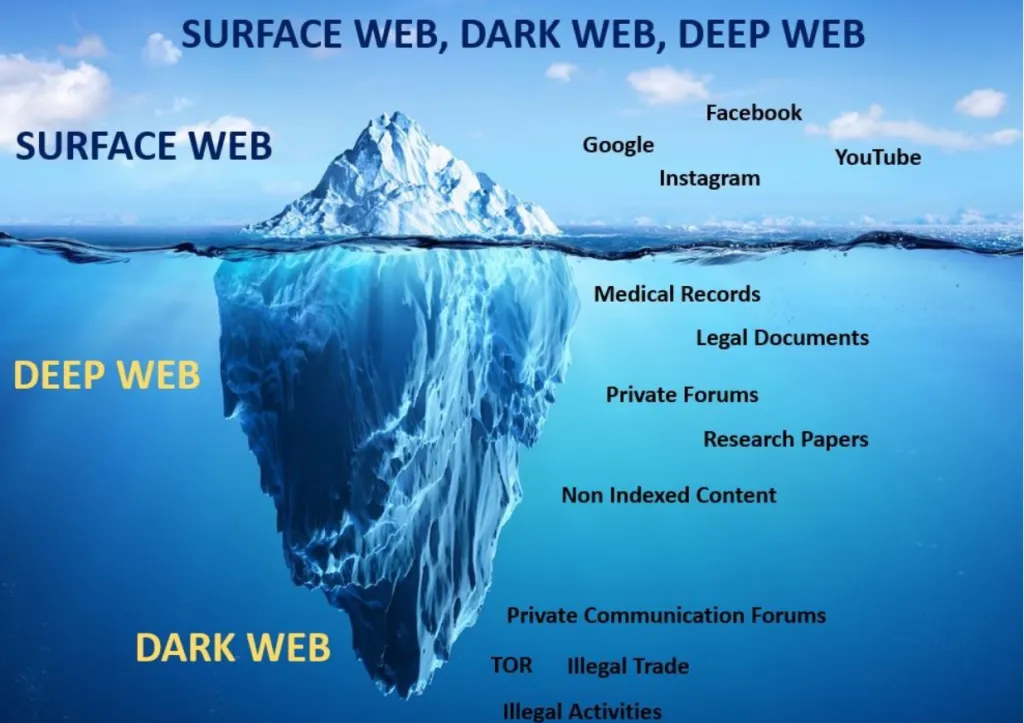
Now, the dark web is a special part of the deep web that is intentionally hidden. To get there, you need a special browser. While there might be legal stuff on the dark web, most people use it for things that are not okay, like illegal activities. So, think of the deep web as a big hidden area, and the dark web as a secret corner inside it, but be careful because the dark web is often associated with things that break the rules.
Legitimate Uses and Anonymity
Sometimes, the dark web is linked with bad things, but it's not all bad. Some people use it for good reasons, like those who want to share their opinions or information without being controlled by big tech companies. People who might be in danger because of their political views or those living in places where there's too much control might use the dark web to keep their important information safe and private.
So, the dark web is a bit like a secret place where you can express yourself without big tech companies watching. It's not just for bad things; some folks use it to stay safe and keep their opinions protected, especially if they're in places where expressing themselves openly could be risky.
Historical Roots and Evolution
The dark web has been around since the early 2000s, and it all started with projects like Freenet and TOR (The Onion Router). These projects were like the building blocks that made the dark web a place where people could talk online securely and without others knowing who they are. The U.S. Naval Research Laboratory supported TOR, and it became one of the main tools for people to use the dark web.
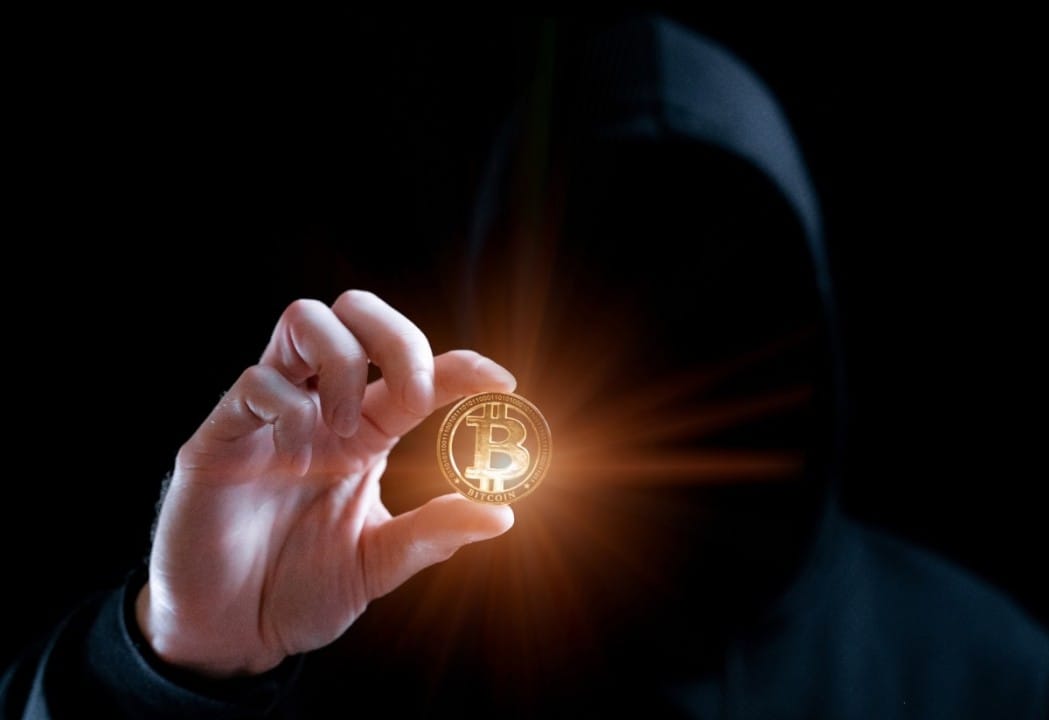
Later on, when cryptocurrencies like Bitcoin came into play, the dark web became even more popular. Cryptocurrencies let people do transactions without anyone knowing who they are, which is something cybercriminals find very attractive for doing illegal things on the dark web. So, the dark web evolved over time, starting with projects for secure communication and becoming more popular with the rise of cryptocurrencies.
The TOR Browser
The TOR Browser is like a special key that helps people enter the dark web. It was made in the mid-1990s to keep secret the communications of U.S. intelligence. What makes it special is that it uses three layers of protection and a unique way of sending internet traffic. It's like bouncing the information through different places so that no one can easily find out who is using it. This is really important for people who want to use the dark web for good reasons, like activists, journalists, and law enforcement agencies who need to stay hidden.
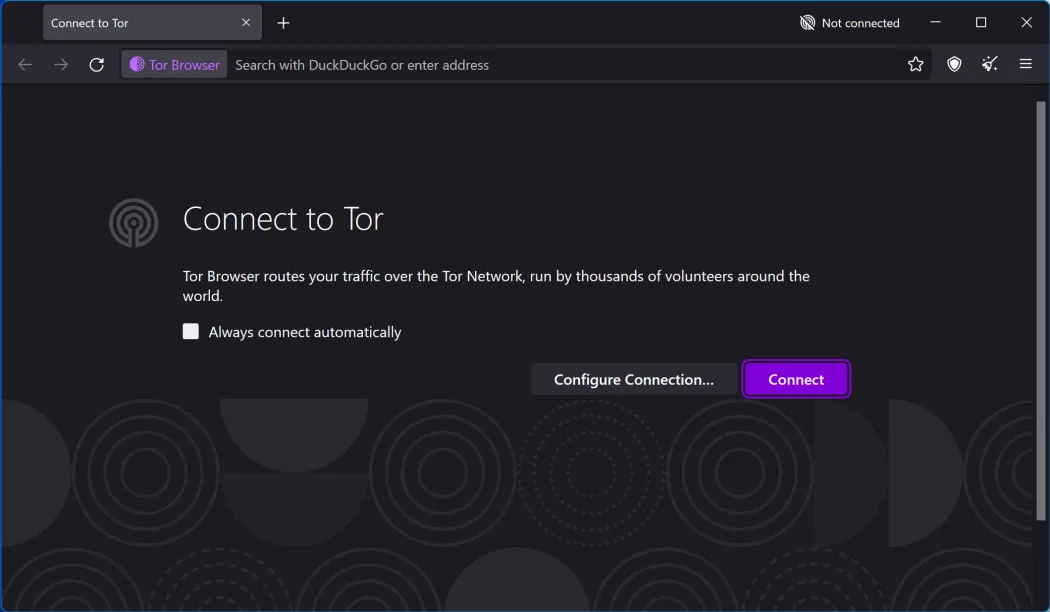
So, the TOR Browser is like a superhero tool for those who want to stay anonymous online. It was created a long time ago to protect secret information, and now it helps people who need to keep their identity hidden for good reasons when they use the dark web.
Illicit Activities and Dark Web Marketplaces
The Dark Web is well-known for illegal activities due to the anonymity it provides. On Dark Web sites, one can find various illicit offerings such as illegal drugs, guides on making homemade drugs, stolen identity information, hacked credit card and bank details, hacking services, human trafficking, satanist rituals, live-streamed gore content, hitmen seeking jobs, terrorist group channels, and e-books on bomb-making. Even everyday items like illegal electronics are available, and purchasing stolen data is made simple, resembling an online shopping experience with software-generated payment cards to ensure anonymity.


Image Ref: Weapon Trade, Human trafficking
The scale of cybercrime on the Dark Web is significant. For instance, it once hosted almost 10 million medical records stolen from a large U.S. insurance company, selling for 750 bitcoins (around $550,000 at that time). This data included names, addresses, emails, phone numbers, dates of birth, and social security numbers. The Dark Web serves as a hub for a wide range of criminal activities, including the sale of illegal goods, drugs, firearms, and even features an unsettling "Assassination Market" where individuals can pay for someone's assassination.
These secret websites on the dark web have names that end with .onion, and they're tricky to find because their names are like a puzzle. Even though the police have shut down some of these bad websites, new ones keep popping up, and they're always changing to avoid getting caught.
Data Crimes on the Dark Web
One really worrying thing about the dark web is that people trade and sell stolen and fake information. This includes personal details like names, financial info, online account logins, medical records, and even secret business information. They treat this information like things to buy and sell on a kind of secret market.
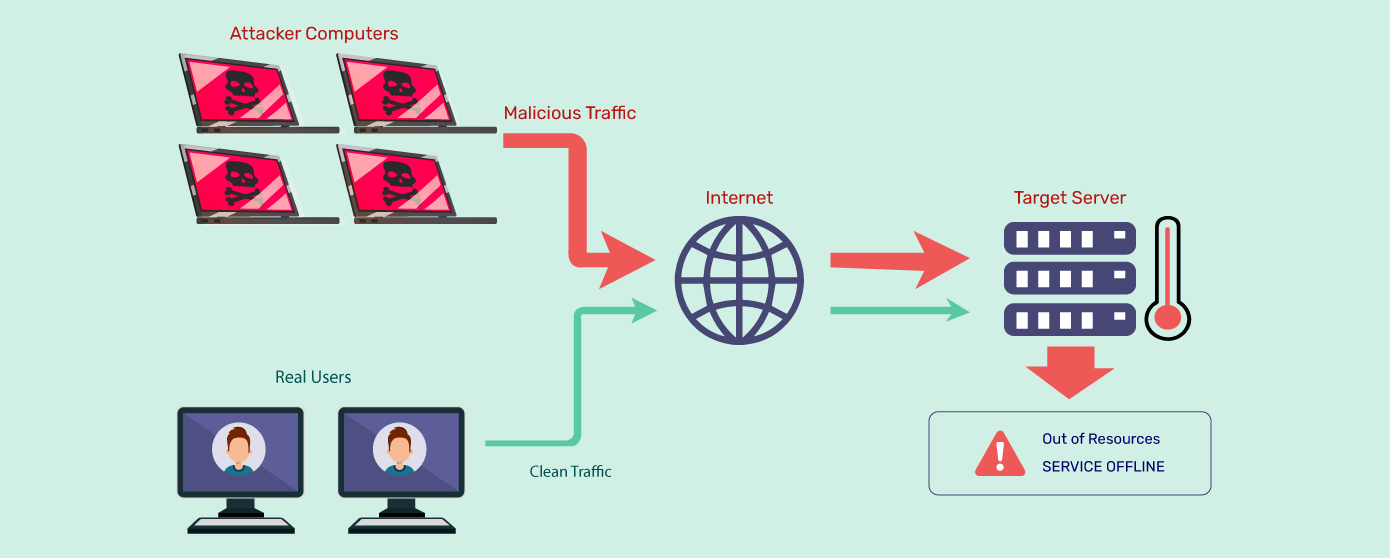
But it's not just about information; the dark web also offers services that help bad people do harmful things online. They provide tools like exploit kits to break into systems, botnets that hackers use for attacks, services to overload websites with traffic (DDoS attacks), training for people who want to be cybercriminals, and even money laundering to clean up stolen money. So, the dark web is not just a place for selling information; it's like a marketplace for illegal tools and services too.
FAQs
Is It Illegal to Access the Dark Web?
Accessing the dark web is not inherently illegal, contrary to its name. In fact, it offers a level of privacy and anonymity that regular websites often lack. For example, individuals can visit the dark web to share their opinions on political matters without worrying about facing consequences from government officials or other groups.
How Do You Get on the Dark Web?
To enter the dark web, you can use specialized and anonymous browsers like TOR. After installation, this browser functions similarly to regular ones, but finding information can be a bit challenging since it doesn't rely on an index. It's important to enhance your computer's security by installing protective software to ensure the safety of your personal information.
How Do You Find Out If Your Information Is on the Dark Web?
To check if your personal details like banking, social media, email accounts, and Social Security numbers are being sold on the dark web, you can conduct a dark web scan. Another option is to subscribe to a dark web monitoring service, which will alert you whenever it detects any of your information being circulated on the dark web.
Conclusion
In conclusion, the dark web remains an enigmatic space on the internet, offering both anonymity for legitimate users and a breeding ground for illicit activities. The TOR Browser serves as a gateway to this hidden realm, emphasizing the need for cautious exploration. The ongoing efforts of law enforcement to combat cybercrime on the dark web demonstrate the global commitment to addressing the risks and potential harm associated with this digital underworld. As users, staying informed, exercising caution, and prioritizing online safety are imperative when venturing into the complex and shadowy landscape of the dark web.




